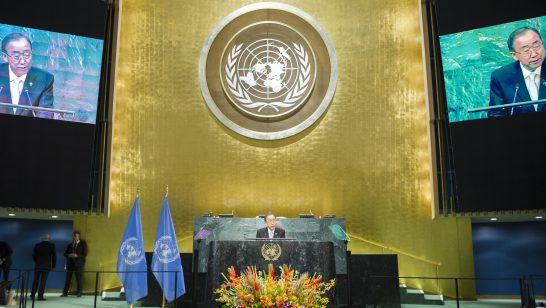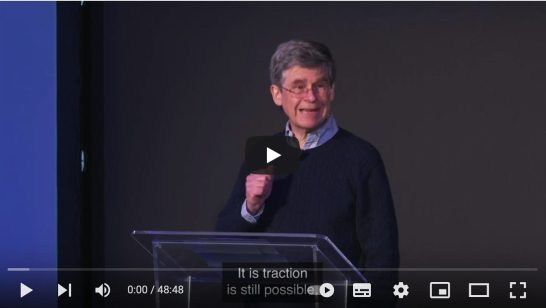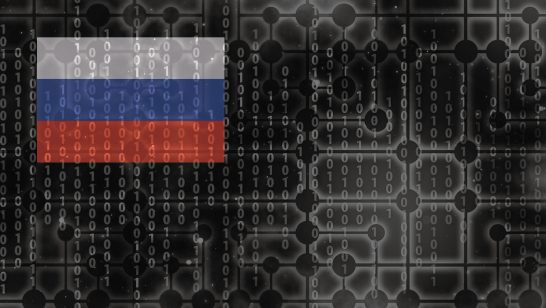
One of the dramas playing out this month in New York at the 2015 Review Conference for parties to the Treaty on the Non-proliferation of Nuclear Weapons (NPT) concerns the future of discussions on establishing the weapons of mass destruction free zone in the Middle East.
The Group of Arab States released a paper last week outlining a new approach, turning away from key elements of the action plan on the Middle East that was negotiated at the 2010 Review Conference. If the Arab group—led by Egypt on this issue—adheres to its position, it is likely to meet with stiff opposition from the United States and others at the Review Conference and it could derail prospects for further dialogue.
The Arab states are understandably frustrated with the years of inaction. In 1995, the indefinite extension of the NPT was conditioned on UK, US, and Russian sponsorship of a resolution calling on Middle Eastern states to take practical steps toward the establishment of a zone free of weapons of mass destruction and their delivery systems. Between 1995 and 2010, there was no discernible movement towards the implementation of the 1995 Middle East resolution.
In 2010, the NPT Review Conference called upon the sponsors of the 1995 resolution to convene a conference, no later than the end of 2012, on establishing a WMD-free zone in the region. That deadline came and went, fueling further Arab anger. This week Ambassador Hisham Badr from Egypt recalled the Review Conference’s “dismal record” of unfulfilled commitments on the Middle East.
But the time since 2010 has not been wasted. The UN Secretary General appointed an able facilitator, Ambassador Jaakko Laajava, from Finland. Finland agreed to host a conference in Helsinki. Ambassador Laajava worked tirelessly, in over 600 meetings since 2011, to try to bridge the positions of various parties.
The parties of the region met face to face in five rounds of informal meetings to work out modalities for the Helsinki conference. Iran participated in at least one of these consultations. Israel and several Arab states participated in all of them. Referring to these meetings, Ambassador Laajava reported being “impressed by the participants’ readiness to engage, by their wish to make progress and their open and constructive approach.” In a joint paper this week, the United States, UK, and Russia characterized the meetings as “positive and constructive.” They noted that the parties made “significant progress,” broadly agreeing on the vast majority of the agenda items for a conference, engaging in serious discussion of conference modalities and outcomes, and expressing a willingness to take decisions by consensus.
Israel’s position over the past few years has evolved considerably. In June 2010, Prime Minister Netanyahu called the Review Conference’s action plan “deeply flawed and hypocritical” and vowed not to take part in its implementation. But Israel was drawn into the discussions by the facilitator. Today, Israel is participating as an official observer in the Review Conference, for the first time since 1995. Israel also submitted a statement urging the states of the region to assume responsibility for promoting dialogue on WMD-related issues and other security challenges facing the region. Israel reiterated its willingness to participate in a conference once the agenda and modalities are agreed.
The Arab group has now called for scrapping this past work in favor of a new approach. Their proposal calls on the UN Secretary General to launch the process of establishing a WMD-free zone in the Middle East by convening a conference, within six months of the end of the current Review Conference, inviting all the states of the region to participate. The 1995 resolution on the Middle East would be the terms of reference for the conference, which should create working groups to negotiate the scope and demarcation of the zone, as well as verification and implementation measures. The conference and working groups are to convene annually to negotiate the terms of a WMD-free zone treaty. The UN Secretary General will report on progress to the 2020 NPT Review Conference. The proposal also calls on the P-5 to provide “all necessary support” to the mandate of establishing a Middle East WMD-free zone.
The Arab group’s paper has some positive elements, and new thinking on this issue is definitely needed. In particular, the explicit call for an ongoing and iterative process with working groups should be welcomed. But in other respects, the Arab position seems divorced from reality. A lot has happened in the Middle East since 2010 when the current effort to convene discussions of a WMD-free zone in the region began in earnest. As Ambassador Laajava shuttled between capitals, popular uprisings swept across the region, a devastating civil war has consumed Syria, an Iranian-Saudi proxy war rages in Yemen, and ISIS has emerged as a significant regional player. In the meantime, nuclear negotiations progressed between the P5+1 and Iran, with promising prospects.
Though these developments are familiar to anyone who follows the news, they warrant repeating because the Arab group position seems not to recognize them. It envisions proceeding as if the convulsions of the region, the security vulnerabilities of the states and regimes within it, even the use of chemical weapons in Syria could be disconnected from the discussion of establishing WMD-free zone in the Middle East.
It would be easy to shrug off the entire drama were it not so important to the future of the region. If the 2015 Review Conference collapses without consensus (and it may for reasons that have nothing to do with the Middle East), and efforts to convene a Middle East conference are discontinued, the failure will resonate for years to come. No region-wide institutions exist in the Middle East today. A cooperative process for discussing WMD disarmament is important not for what it might produce this year or next, but because of the foundation it might provide for regional problem-solving in the future.
When the Arab paper proposes placing the job of convening a conference in the hands of the UN Secretary General, it conspicuously erases the notion that the conference will be rooted in “arrangements freely arrived at by the States of the region.” This was a key element of the 2010 action plan and the basis of the limited progress we have seen to date. Any proposal that moves the parties away from a regional process is counterproductive.
It is to be expected that the Arab group and Iran will harp on Israel’s nuclear weapons and unsafeguarded facilities. For Israel, this is the price of remaining outside of the NPT while benefiting from its existence. But the Arab position threatens to end an important and fragile dialogue that has unfolded in recent years. If that process is abandoned, the Arab League will be handing a gift to nuclear hardliners in both Iran and Israel, who, for their own reasons, would be content to see an end to efforts to push serious discussions of a WMD-free zone in the Middle East.
The opinions articulated above represent the views of the author(s), and do not necessarily reflect the position of the European Leadership Network or any of its members. The ELN’s aim is to encourage debates that will help develop Europe’s capacity to address the pressing foreign, defence, and security challenges of our time.



